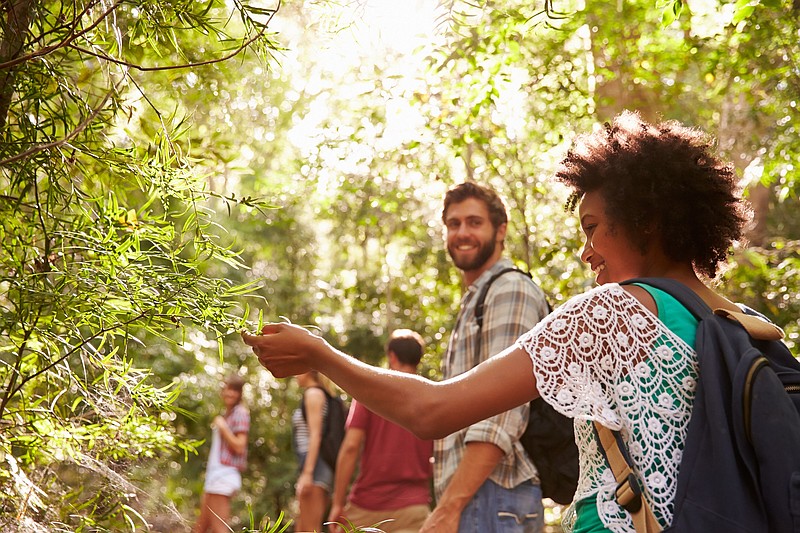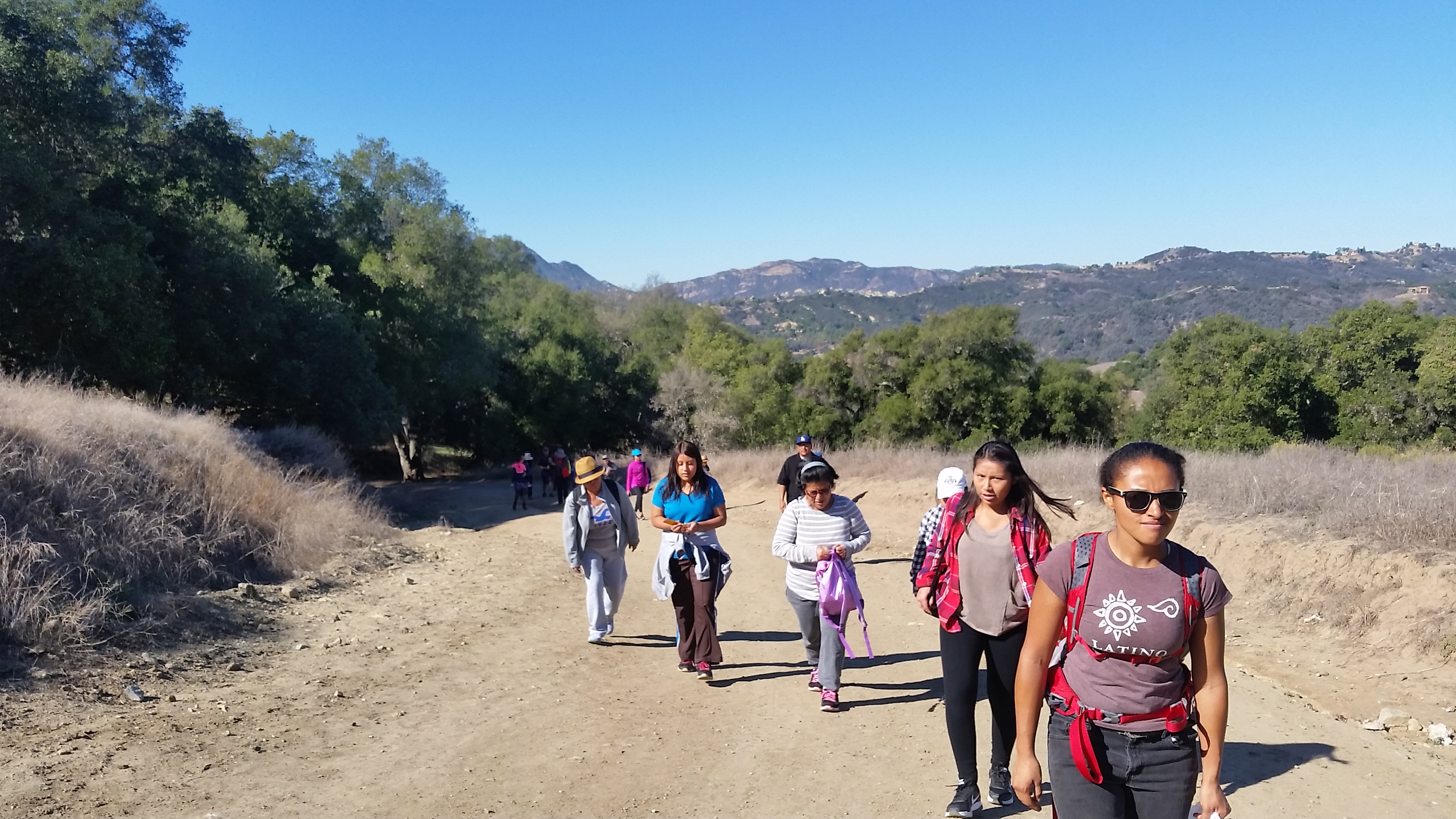Meet the Ambassadors
On Feb. 11, Outdoor Chattanooga and the Office of Multicultural Affairs are hosting an event to officially kick off the Outdoor Ambassadors program. The event begins at 5:30 p.m. at Soldiers and Sailors Memorial Auditorium. There, the 10 ambassadors will be introduced to the public, followed by a screening of The American Ascent, a 2014 documentary that chronicles the first African-American expedition to climb North America’s highest peak, Denali. The event is free to the public.
Today, more than 318 million people live in the United States: 63 percent Caucasian; 17 percent Hispanic; and 12 percent African-American. By 2050, the U.S. population is expected to grow by 100 million. Hispanic and mixed-race communities are expected to triple. Whites will become a minority.
And how, one might ask, is that relevant to an outdoor magazine?
Here is the long answer.In 2014, The Outdoor Foundation concluded a six-year study that tracked Americans' participation in outdoor recreation. It found that 48 percent, or 141 million Americans, partook in at least one outdoor activity in 2014 - jogging, camping, birdwatching, skateboarding, etc. Seventy percent of those participants between the ages of 6 and 24 were Caucasian while only 10 percent were Latino and another 10 percent were African-American.
Indeed, the lack of diversity in outdoor recreation is stark, causing some environmentalists to worry who will protect open spaces in the future.
That got Terri Chapin and James McKissic brainstorming. Chapin is programs coordinator for Outdoor Chattanooga, a division of the city of Chattanooga's Parks and Recreation Department. McKissic is director of the city's Office of Multicultural Affairs.
McKissic believes the dearth of racial representation in outdoor recreation is due to two big reasons: lack of engagement and lack of awareness. Together, he and Chapin developed a partnership program to combat both. Called Outdoor Ambassadors, the local initiative strives to connect more communities to nature through a series of outdoor events led by a diverse group of "ambassadors."
Ten outdoor ambassadors, representing a range of cultures, were chosen through a rigorous interview process. They had to pass physicals and background checks and complete field studies and leadership training to become certified outdoor guides. Each ambassador is required to lead six outdoor excursions, called "OutVentures," per year. They receive a $50 stipend per trip. The type of outdoor event is up to the individual. Likewise, ambassadors choose which demographic they want to target. For example, one ambassador, Visesiya Uwifashije, is a multilingual woman from Tanzania. Her focus will be on engaging refugees.
According to McKissic, the difference between outreach and engagement is that outreach simply sends information into a community hoping it will be received, whereas engagement sends a trusted person to offer a hand to community members. Trust, he says, is crucial when encouraging a person to try something new. And it is the first step to shifting cultural norms - like, for example, the stereotype that black people don't like to be outside, says outdoor ambassador Nicole Lewis.
"When I was growing up, we didn't do much outdoors. That was for the 'Subaru people.' And I didn't fit that," says Lewis, community engagement coordinator for Glass House Collective, a community organization whose mission is to revitalize Glass Street in East Chattanooga.
East Chattanooga is home to many low-income families - which generally have higher rates of disease like high blood pressure, heart disease and diabetes. "Preventable chronic diseases," Lewis says. "Things that can be taken care of with exercise."
She chose East Chattanoogans as her target demographic. One of her first OutVentures will be a hike to Sherman Reservation, a 40-acre National Military Park located on Missionary Ridge, within walking distance of Glass Street.
"In our backyard! And most people don't even know it's there," says Lewis. She believes children have an innate love for the outdoors, "they just get bored not knowing what they're supposed to do out there."
McKissic remembers when he and Chapin hosted a meeting to gauge interest in the program. Eighty culturally and racially diverse people attended the event. McKissic asked how many in the group had ever visited Outdoor Chattanooga's space, which provides maps, brochures, calendars and more to help connect the community with outdoor recreation. Less than a quarter of attendees raised their hands.
In order to engage more diverse communities with the outdoors, McKissic says, those communities must first be aware of the resources to help them get there.
Outdoor Ambassadors is not the first initiative to promote diversity in the outdoors. In 2009, a California woman named Rue Mapp launched Outdoor Afro, a group devoted to reconnecting African-Americans to nature. Outdoor Afro now has chapters across the country totaling 10,356 members. Similarly, Atlanta-based Black Girls RUN!, established in 2009 to encourage African-American women to make fitness a priority, has since expanded to 150,000 members nationwide. In 2013, Latino Outdoors was launched to engage more minorities with the natural world and help nurture the next generation of advocates for the wild.
"It makes it easier when someone looks like you. Nobody wants to be the odd man out," Lewis says. She did not develop her love for nature until after she graduated college and relocated to Chattanooga. "What's the best way to figure out a new city when you don't know anyone? That's when I discovered the outdoors."
Now, she says, nature is where she finds her spirituality.
"Man is many different things, good and bad alike, but nature is pure. Birds are being birds. Squirrels are being squirrels. To see something so genuine is calming. You don't have to be the best or the brightest, you just have to care," says Lewis.
Nature, she continues, leaves out no one; it is constant - unlike the country's shifting population. And if the two cannot be reconciled?
"We stand to lose it all," Chapin says.

